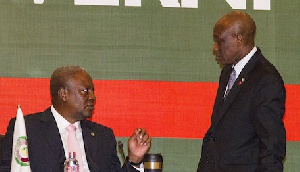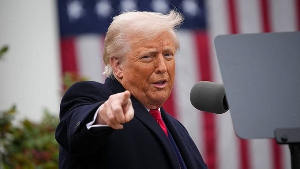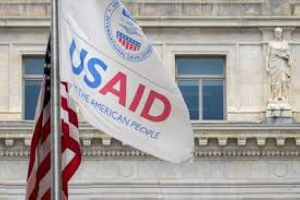The dose of policy prescriptions outlined by the International Monetary Fund (IMF) to get Ghana out of its current economic troubles could prove too difficult to implement given the high political and social costs of managing the austerity.
From public sector workers and fiscal retrenchment targets to tightened monetary policies, government has bought into a deal that could put the economy back in the recovery lane, and at the same time potentially dent the ruling government’s political ambitions ahead of the 2016 presidential and parliamentary polls.
Ghana is currently faced with a sovereign debt crisis, rising interest costs, policy slippages and external shocks which have dampened the country’s medium-term prospects, and the sacrifices the IMF wants Ghana to make have put government’s credibility on the line.
According to the IMF, there is a need for government to improve on its revenue position by ensuring that sectors and firms which have long enjoyed tax-breaks and exemptions are made to pay taxes.
To this end, the Fund wants government to review and streamline the tax exemption regime for free zone companies and state-owned enterprises. More so, a new tax policy regime is expected to be enacted for small businesses, as and when a planned raise in the VAT threshold is accomplished.
As has already been reported by the B&FT, the IMF wants the Bank of Ghana to completely shy away from printing money to finance government’s budget -- latest by 2016 -- before which the central bank’s financial assistance to the government must be limited to five percent of the previous year’s revenue.
This places a lot of pressure on government to spend within its means, since the Bank of Ghana has over the past four years been the main source of funding for government’s huge deficit.
For a country that has often witnessed a splurge of spending by successive governments in election years, the cap on the central bank’s financing of the budget is a test-case for a government that is seeking an additional four-year term in office to narrow the deficit gap.
Meanwhile, government has also been told by the IMF to tame its appetite for borrowing and limit the rush to the international capital market, and instead adopt a prudent borrowing strategy in order to improve the country’s debt distress situation, which has seen the debt-to-GDP ratio jump from 54.8% in 2013 to 67.2% at the end of 2014.
On the expenditure side, the IMF has advised government to restrain the wage bill, which has been one of the main reasons for the country’s fiscal imbalances, by limiting the nominal increase in the total wage bill to 10 percent; scrap the 10 percent Cost of Living Allowance granted to workers last year; and also get an agreement with labour unions on a 13 percent wage increase over the 2013 nominal basic wage.
Additionally, the Fund wants government to freeze employment into the public sector, except the education and health sectors, and also do away with subsidies for utilities and fuel consumption by ensuring that the automatic adjustment formula is implemented to the core.
These prescriptions mirror the IMF’s structural adjustment programme for Ghana in the 80’s, which brought about hardship in the economy as subsidies were scrapped, public sector jobs got cut, and wages were kept at the minimum.
Government’s official position is that the country will comply well with the set conditionalities, but it would not be unduly sceptical to suggest that much of this upbeat talk is built on wishful thinking -- or more accurately, perhaps, to suggest that the real purpose is to resurrect waning investor confidence in the economy and also buy time to achieve a stable exchange rate regime, albeit short-term.
Already a growing number of international institutions, including credit rating agency Fitch and the Economists Intelligence Unit (EIU), have cast doubts on government’s willingness to follow through the three-year austerity programme as election fortunes lurk in the background.
The two bodies are unconvinced by government’s assurances that next year’s elections will not derail the “ambitious” three-year economic stability programme with the IMF.
Indeed, the IMF itself has noted that one of the risks posed to its programme with Ghana has got to do with the run-up to the 2016 elections, which may lead to social tensions and a strong push for policy reversal.
It will thus be a plus for the country’s governance system and credibility to follow through the three-year programme in view of the fact that some other countries, such as Greece, have had to succumb to public pressure and abandon implementation of their austere measures.
Meanwhile, Eugene Davis reports that serial entrepreneur and flag-bearer of the Progressive Peoples Party, Dr. Paa Kwesi Ndoum, is convinced that the only way Ghana can reap dividends from the IMF assistance is for government to strictly adhere to the bailout programme.
He argued that the country’s track-record regarding strict adherence to IMF programmes is not encouraging.
“We are in it. We have taken IMF’s money and there is no turning back. All I am hoping and praying is that those who have been given responsibilities to utilise the funds will be serious with them, so we can get appropriate profit.”
“I am also hoping that whatever we have signed on to do; whatever conditions or whatever we are supposed to do as a result of taking their money, we will take care of them seriously so that we don’t lose credibility.
And it is important that we keep that and build upon it, and have good credibility as a nation,” he told B&FT.
Dr. Ndoum bemoaned the negativity in the system, saying: “There is too much negativity. We are ready to talk if something goes wrong with the IMF programme”.
The IMF has put Ghana into the category of countries that are a few steps away from falling into the league of High Debt Distress Countries (HDDC).
According to the IMF, Ghana was put into this category after its debts in relation to taxes, revenue and exports crossed the minimum threshold that measures a country's distress status.
The Fund argues it is required to do this to ensure that any financial institution or investor dealing with Ghana appreciates and understands the country’s ability to pay its debts on time.
The latest categorisation of Ghana comes after the Fund’s new fiscal monitoring report projected that the country’s debt-to-GDP ratio might hit the dreaded 70 percent by end of this year.
Ghana’s economic growth rate topped 9 percent in 2011, but three difficult years followed that were characterised by slowing activity, accelerating inflation, and rising debt levels and financial vulnerabilities.
The country’s economic prospects were put at risk by the emergence of large fiscal and external imbalances, as well as electricity shortages.
Inflationary pressures rose on the back of a large cedi-depreciation and financing the fiscal deficit by the Bank of Ghana.
Despite several hikes in policy interest rates in 2014, which brought them to 21 percent, headline inflation reached 17 percent at end-2014 -- well above the 8 +/- 2 percent official target range.
General News of Friday, 24 April 2015
Source: B&FT













